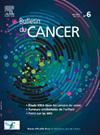Prognostic factors of breast cancer and survival in Sub-Saharan Africa: A systematic review and meta-analysis
IF 0.8
4区 医学
Q4 ONCOLOGY
引用次数: 0
Abstract
Background
Breast cancer is an escalating public health concern in Sub-Saharan Africa (SSA), where mortality rates remain disproportionately high despite lower incidence compared to Western countries. The combination of late-stage diagnoses, limited healthcare infrastructure, and socioeconomic inequalities severely compromises patient outcomes.
Methods
We conducted a systematic review and meta-analysis of 85 studies encompassing 33,053 patients across SSA to characterize breast cancer profiles, focusing on age at diagnosis, cancer stage, molecular subtypes, and survival outcomes.
Findings
The mean age at diagnosis was 48.7 years, notably younger than in high-income regions. Half of the patients were diagnosed at stage III, and only 4% at stage I. Luminal A was the most prevalent molecular subtype (30%), followed closely by triple-negative breast cancer (29%), known for its aggressive course and limited treatment options. Survival analysis revealed a pooled 5-year survival rate of 44%, with substantial regional disparities: survival was poorest in West Africa and comparatively better in East Africa and South Africa.
Conclusions
Our findings expose the critical need for regionally tailored interventions to improve early detection, expand access to comprehensive treatment, and address underlying social determinants of health. This study delivers essential epidemiological benchmarks that should inform targeted strategies for reducing the breast cancer burden and improving survival across Sub-Saharan Africa.
撒哈拉以南非洲地区乳腺癌预后因素与生存:一项系统回顾和荟萃分析。
背景:乳腺癌是撒哈拉以南非洲(SSA)不断升级的公共卫生问题,尽管与西方国家相比发病率较低,但死亡率仍然高得不成比例。晚期诊断、有限的医疗基础设施和社会经济不平等的结合严重损害了患者的预后。方法:我们对85项研究进行了系统回顾和荟萃分析,包括33,053名SSA患者,以表征乳腺癌概况,重点关注诊断年龄、癌症分期、分子亚型和生存结果。结果:平均诊断年龄为48.7岁,明显低于高收入地区。一半的患者被诊断为III期,只有4%的患者被诊断为i期。Luminal A是最常见的分子亚型(30%),紧随其后的是三阴性乳腺癌(29%),以其侵袭性病程和有限的治疗选择而闻名。生存分析显示,总的5年生存率为44%,存在显著的地区差异:西非的生存率最低,而东非和南非的生存率相对较高。结论:我们的研究结果表明,迫切需要有针对性的区域干预措施,以改善早期发现,扩大获得综合治疗的机会,并解决健康的潜在社会决定因素。这项研究提供了基本的流行病学基准,应为撒哈拉以南非洲地区减少乳腺癌负担和提高生存率的有针对性战略提供信息。
本文章由计算机程序翻译,如有差异,请以英文原文为准。
求助全文
约1分钟内获得全文
求助全文
来源期刊

Bulletin Du Cancer
医学-肿瘤学
CiteScore
1.90
自引率
16.70%
发文量
224
审稿时长
37 days
期刊介绍:
Without doubt, the ''Bulletin du Cancer'' is the French language publication of reference in the field of cancerology. Official organ of the French Society of Cancer, this journal covers all the information available, whether in the form of original articles or review articles, but also clinical cases and letters to the editor, including various disciplines as onco-hematology, solids tumors, medical oncology, pharmacology, epidemiology, biology as well as fundamental research in cancerology. The journal proposes a clinical and therapeutic approach of high scientific standard and regular updates in knowledge are thus made possible. Articles can be submitted in French or English.
 求助内容:
求助内容: 应助结果提醒方式:
应助结果提醒方式:


